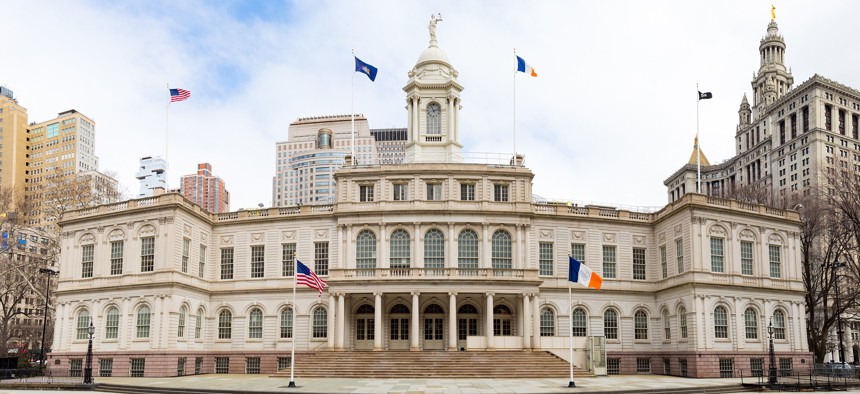Nonprofits
PASSPort Public sheds light on procurement
Here’s a look at how the city has made this important step towards transparency and accountability

New York City Hall Benjamin Kanter/Mayoral Photo Office
When New York City recently announced the launch of PASSPort Public, Mayor Adams said that it would help improve procurement since “sunlight is the best disinfectant.” PASSPort Public is an important step towards transparency and accountability. Until now, the only publicly available information on city contracts has come from Checkbook NYC, which is largely a record of the past since it only includes contracts that have been registered. PASSPort Public includes information on unregistered contracts, making it a better window into what is actually happening right now.
Here are the highlights of what the data in PASSPort Public show as of Friday, June 24, 2022:
- Unregistered FY2022 contracts: One week away from the end of 2022 fiscal year, 46% of FY2022 human service contracts have still not been registered (41% of the total dollar value). For discretionary contracts, 67% of the contracts remain unregistered (68% of the total value). For non-discretionary contracts, 18% are unregistered (again 41% of the total dollar value).
- Overall Agency Performance: Nonprofits believe that the Department of Education and the Mayor’s Office of Criminal Justice are currently the worst with respect to registration delays. The data prove that they are right. The DOE has yet to register 60% of its FY2022 non-discretionary contracts; MOCJ has yet to register 53% of its non-discretionary contracts. By contrast, the Department of Health and Mental Hygiene, Department of Youth & Community Development, Department for the Aging and Administration for Children's Services have all registered between 85% to 100% of their FY22 non-discretionary contracts. The relative performance of the agencies is largely the same for discretionary contracts.
- Monthly Activity: The aggregate registration performance is no surprise given the monthly activity levels. The DOE did not register a single contract in the first six months of FY2022. MOCJ has registered only six contracts since last July; in seven of the last twelve months not a single MOCJ contract was registered.
- The Financial Burden: Unregistered contracts represent about $730 million in estimated FY2022 expenses. These are expenses that have already been incurred by nonprofits on which the city has paid nothing. Based on what the city has already paid on its registered contracts (about 50%), registration delays have imposed a cash flow burden of $350 million on the underlying nonprofits before consideration of the interest costs.
- Termination Rate: While delays in registration are an enormous problem, the vast majority of contracts do ultimately get registered. In fact, not a single FY22 contract has been terminated.
- The Greatest Burdens: More than 1,000 organizations have been working under FY22 contracts that remain unregistered:160 have unregistered non-discretionary contracts; the rest have unregistered discretionary contracts. Eighteen organizations have more than $10 million in unregistered FY2022 contracts.
- Looking Forward: In one week, nonprofits will begin work on FY23 contracts of which more than 500 have already been awarded but only 25% have been registered (16% of the total value). Some agencies – DFTA and ACS -- have already registered more than half their FY23 contracts; MOCJ has registered none.
Here is the underlying analysis for anyone interested in checking, extending, or improving it.
PASSPort Public shines some welcome sunlight on the procurement process but a few important things are missing. “In Progress” is a catch-all status which includes almost 90% of the unregistered contracts. While some of these may be truly “In Progress,” for the vast majority “Not Started” might be more accurate. It would be helpful to split out these two categories and to show the last date on which something – anything – has been done with respect to the contract from a procurement standpoint. It would also be helpful to have the registration date available within PASSPort Public rather than requiring would-be analysts to look it up from CheckBook NYC.
The release of PASSPort Public continues to suggest the city is serious about procurement reform. The upcoming start of the new fiscal year will provide an opportunity for the city to prove it. It would be the height of irony if the city expects its nonprofit partners to begin work under new FY23 contracts while any of their FY22 contracts remain unregistered and unpaid. I hope and expect to see a big push over the next few weeks to work through the remaining FY2022 backlog. PASSPort Public will provide the data to find out if that happens. Stay tuned.